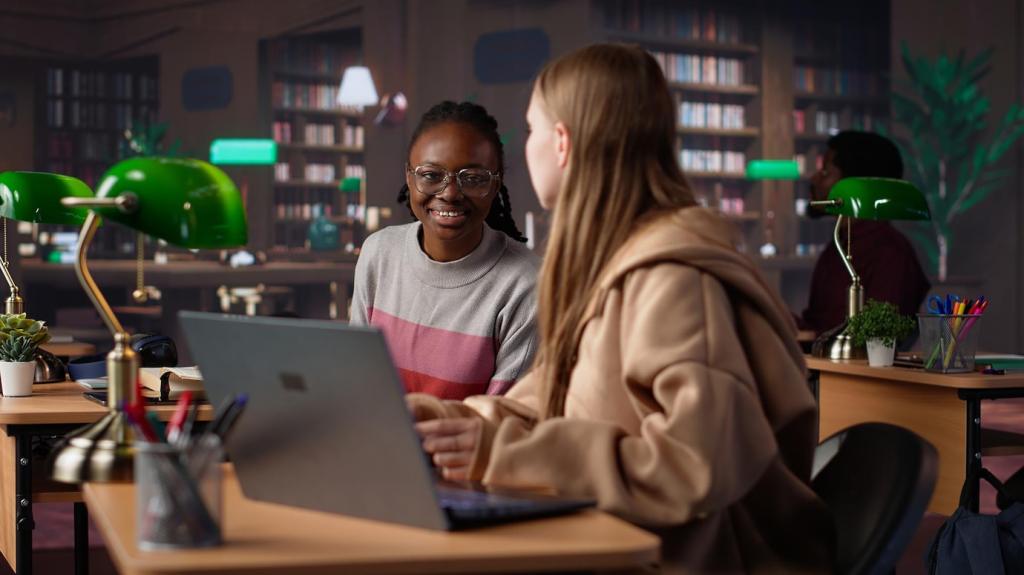The Evolution of Tutor-Student Interactions
Chosen theme: The Evolution of Tutor-Student Interactions. Join us as we trace how mentoring has shifted from whispered wisdom in apprenticeships to dynamic, data-informed conversations online. Share your experiences, subscribe for fresh insights, and help shape tomorrow’s learning dialogue.

Socratic beginnings to seminar circles
Socratic questioning seeded traditions of guided inquiry that later blossomed into medieval disputations and modern seminars. Which conversational habits still echo in your learning today? Share an early tutoring memory that shaped your approach to asking and answering questions.
Correspondence courses and radio lessons
Postal feedback and educational broadcasts expanded instruction beyond city walls, proving dialogue can travel without presence. Did anyone in your family study by mail or radio? Tell us what persisted from those formats in your current learning habits.
Web forums to video calls
Early message boards birthed asynchronous mentoring, later complemented by live video, screen sharing, and whiteboards. What did your first online session feel like? Comment with a moment when technology made a difficult concept finally click.

The Human Element: Empathy, Trust, and Motivation
Active listening transforms outcomes
A tutor once noticed a student’s notebook doodles of constellations and reframed a physics lesson around stargazing. Confidence followed curiosity. Have you reframed a topic around a learner’s passion? Add your example to inspire our community.




Negotiating goals together
Co-create agendas: today’s target, evidence of success, and one stretch challenge. Partnership increases persistence. What single question best surfaces a learner’s real goal beneath the assignment? Share it so others can borrow and adapt it thoughtfully.
Cultural responsiveness in dialogue
Language, identity, and norms shape how feedback lands. Tutors who check assumptions and invite context build trust. What cultural habit changed your approach to explanations or examples? Add your lesson learned to help others bridge perspectives respectfully.
Peer tutoring and near‑peer mentors
Students often internalize strategies faster from someone just ahead on the path. Near‑peer mentors can normalize struggle. Have you seen peer sessions reshape confidence or belonging? Comment with a brief vignette that illustrates this power shift in action.
Access and Inclusion: Broadening the Conversation
Offer multiple ways to engage: captions, transcripts, visual organizers, and hands-on alternatives. Choice empowers diverse thinkers. What option helped a learner finally participate fully? Share specifics so others can replicate that inclusive interaction today.
Access and Inclusion: Broadening the Conversation
Slow pacing, paraphrasing, and shared glossaries reduce anxiety. Celebrate multilingual assets rather than apologizing for them. Which phrase helps you pause and check understanding gracefully? Contribute your line so more learners feel welcome in discussions.



Formative check-ins over high-stakes tests
Micro-assessments—one-minute reflections, exit tickets, or quick polls—guide immediate adjustments. Which micro-check reveals the most about understanding in your sessions? Share your favorite and why it sparks richer, more honest tutor-student exchanges.

Rubrics as shared maps
Co-building criteria demystifies quality and invites self-assessment. Ask learners to annotate a rubric with examples in their own words. How do you introduce rubrics without killing creativity? Offer a tip that keeps voice and clarity in balance.

Reflective journals and metacognition
Short reflections capture strategy shifts and emotions after each session. Over time, patterns emerge that guide new goals. What reflection prompt reveals the most? Share it, and subscribe to receive a monthly list of fresh prompts.
